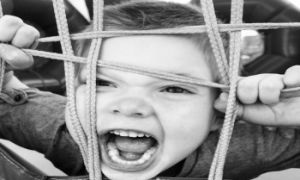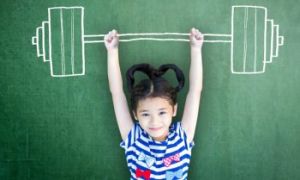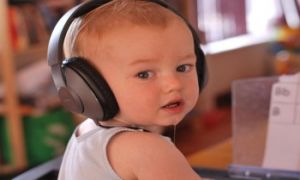

Among all the changes that impact a child’s early life, one of the most significant is the move from early education and care setting to a full-time school. The following article provides Educators with a guide on planning supportive transition practices for preschoolers going to primary school the following year including practical ideas to involve children, partnering with families, collaborating with other professionals, planning transition programs and more.
The Early Years Learning Framework identifies that positive attitudes and competencies in literacy and numeracy are important aspects
of communication and are vital for children’s successful learning. The indicators have been developed to support teachers to extend and enrich every preschool child’s numeracy and literacy learning. The following article provides information on What Are The Indicators, the Importance of The Indicators, Learning Processes, Numeracy and Literacy Indicators and more.
ANZAC Day is commemorated on 25th April and is one of the most important national commemorative occasions in Australia, marking the anniversary of the first major military action fought by Australian and New Zealand armed forces during World War One. Learning about ANZAC Day helps young children to understand the life and times of Australia and its people. The ceremony and traditions are such an integral part of our culture that it gives us an opportunity to talk to children about the importance of ANZAC Day.
In Victoria, children from 3 years old will learn about gender equality in a state-funded playgroup program.
It is reported that Teachers and Early Childhood Educators are finding that children are struggling with basic literacy.
You have a new child starting in your room, their excited, their parents are happy and the family seems to be settling in well with the centre environment. The first day has come for the child to start, parents say goodbye and then the child starts - screaming, crying, pulling, begging their parent not to leave.
At this point preschoolers begin to interact effectively with others. Play becomes more innovative and organized and “boyfriend” or “girlfriend” begins to emerge. Preschoolers have developed an understanding for other’s feelings and become more sensitive. They will also want to be given more responsibility and enjoys helping out with chores... basically at this stage a preschooler is a mini adult.
Preschoolers enjoy talking and are happy to tell their ideas or what they're thinking. They combine words with gestures and facial expressions to make their stories more believable and interesting. Words begin to flow easily and with little effort. During this age, preschoolers will have an endless amount of questions and seeks more detailed information about events or topics that interest them.
At this age, preschoolers make big progress in gross motor skills such as running, jumping, balancing and climbing. Their movement becomes agile and more controlled and learning ability also begins to increase. This enables preschoolers to take part in a variety of activities.
Preschoolers continued progress with fine motor skills depends on the stimulation and encouragement they receive on a daily basis. Improvements typically occur steadily between this age and preschoolers begin to complete small tasks that they couldn't do earlier. Such as cutting with a knife, holding a pencil correctly etc.
 Toddlers have a greater understanding of the world around them by this stage. Their cognitive development (also known as intellectual development and thinking skills) continues… Read More
Toddlers have a greater understanding of the world around them by this stage. Their cognitive development (also known as intellectual development and thinking skills) continues… Read More
 Infants begin to develop trust when parents begin to fulfil their needs. Such as changing an infant's nappy when needed, feeding on request and holding… Read More
Infants begin to develop trust when parents begin to fulfil their needs. Such as changing an infant's nappy when needed, feeding on request and holding… Read More
 Beginning at birth the construction of thought processes, such as memory, problem solving, exploration of objects etc, is an important part of an infant’s cognitive… Read More
Beginning at birth the construction of thought processes, such as memory, problem solving, exploration of objects etc, is an important part of an infant’s cognitive… Read More
 Toddlers want to do more on their own and do not like it when you begin to establish limits on their behaviour. Tantrums can become… Read More
Toddlers want to do more on their own and do not like it when you begin to establish limits on their behaviour. Tantrums can become… Read More
 Your preschooler is now able to focus their attention more accurately and is less influenced by distractions. The intensity of questions increase as your child… Read More
Your preschooler is now able to focus their attention more accurately and is less influenced by distractions. The intensity of questions increase as your child… Read More
 John Dewey is often seen as the proponent of learning by doing – rather than learning by passively receiving. He believed that each child was active,… Read More
John Dewey is often seen as the proponent of learning by doing – rather than learning by passively receiving. He believed that each child was active,… Read More
 Toddler advance and gains new skills in Gross Motor Development milestones achieved throughout earlier years. Co-ordination and challenges that could not be performed before such… Read More
Toddler advance and gains new skills in Gross Motor Development milestones achieved throughout earlier years. Co-ordination and challenges that could not be performed before such… Read More
 Erik Erikson developed a psychosocial theory to understand how we each develop our identities through eight stages of psychosocial development from infancy to adulthood. The… Read More
Erik Erikson developed a psychosocial theory to understand how we each develop our identities through eight stages of psychosocial development from infancy to adulthood. The… Read More
 At this point preschoolers begin to interact effectively with others. Play becomes more innovative and organized and “boyfriend” or “girlfriend” begins to emerge. Preschoolers have… Read More
At this point preschoolers begin to interact effectively with others. Play becomes more innovative and organized and “boyfriend” or “girlfriend” begins to emerge. Preschoolers have… Read More
 From now, babies begin to identify and respond to their own feelings, understanding other's feelings & needs and interact positively with others. A baby's social and… Read More
From now, babies begin to identify and respond to their own feelings, understanding other's feelings & needs and interact positively with others. A baby's social and… Read More

Challenging Behaviour is when a child does something that hurts themselves and/or other people.
See more...
As Educators when communicating with Parents (through verbal or non-verbal communication), there will be times...
See more...
Tremendous advances in brain imaging technology over the last ten years have led to a...
See more...© 2009-2026 Aussie Childcare Network Pty Ltd. All Rights Reserved.

